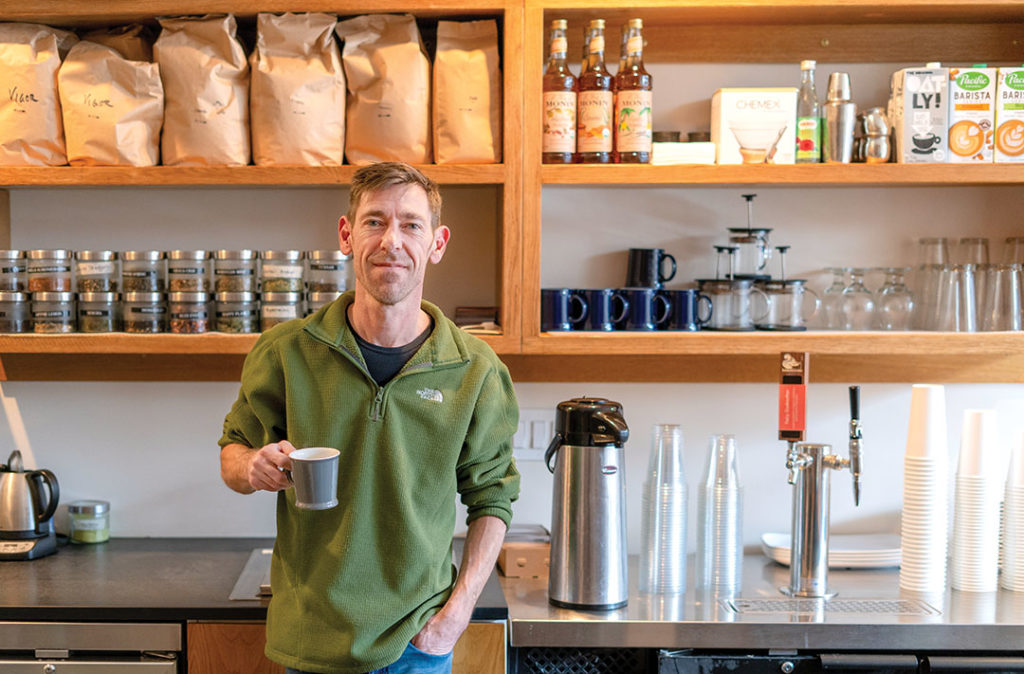A caffeinated chat with one of the borough’s best baristas about the art of coffee.

interview DAN MATHERS @thewcpress
What’s the origin story of The Gryphon Cafe? My business partner Rich Mattis started The Gryphon in Wayne back in 1996. I joined as his manager in 1998 and worked with him for years. Eventually I moved on to help open other shops, but when Rich started to expand — roasting his own, opening other locations — I came back. We partnered to open in Rosemont in… maybe 2012 or 2013? We closed that location to open in West Chester.
Why West Chester? Because I’m from West Chester; I went to Henderson, grew up in town and lived in Westtown the majority of my life — I’m still in the area. Since 1998 I’ve wanted to put a Gryphon in West Chester. We looked and looked for years and couldn’t find a spot that was right, but we finally did.
What differentiates you? We’re more of a traditional European cafe. It’s a come-sit-for-a-while place. Plus, we make most of our own recipes, from syrups, to sauces, to food. We try to be a community space.
Plus, the coffee’s not bad… And we have a really good coffee! Rich is the main roaster, and he’s excellent. He sources amazing coffees, and we spend a lot of time getting them just right.
How do you choose? We try to have a direct trade with our farms. Coffee is a crop, and every season it’s changing, and every season it could be a different flavor profile, so we’re always trying different coffees to see what will be best for us. A lot of it is about picking profiles that will make for a good blend, whether our breakfast blend, espresso blend, or any of the coffees we sell to other people. We need some to bring out the chocolatey notes, some the nutty notes, then maybe a cherry or raspberry flavor to make it all balance out.
Do different flavor profiles lend themselves to different methods of brewing? Some coffees are great for drip — you just want a classic, good cup of coffee. Some might be more acidic and have fruit flavors that might not be what drip drinkers want.
What would you do with the more acidic coffees? Pour over is a great option for exciting coffees. With a pour over, you get a cleaner, smoother cup and flavors can really stand out. So, one of our African coffees, say: it’ll have a lot of stuff going on, and with drip, they might end up muted.
What makes for a great espresso? That can change; you can have different tasting great espressos. You want as balanced a cup as you can get because you get the most intense flavors. If you’ve only got a couple peak flavors, it’ll be too bitey — you need a nice balance of chocolatey, nutty and fruity, and it needs to stand up to whatever milk you might add.
Besides flavor profiles, what do you focus on? We’re not strictly organic or fair trade, but we try to leave as little of a carbon footprint as possible, to use organic and local whenever we can. That applies to the business as a whole — it’s important to be part of the community. It doesn’t matter where we put a gryphon, we want to reflect that community.
